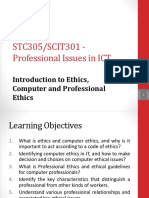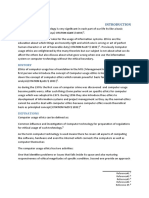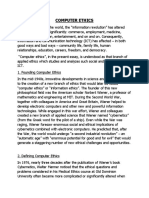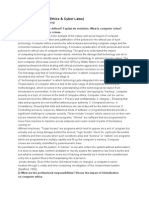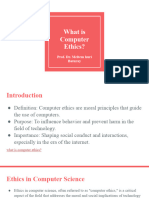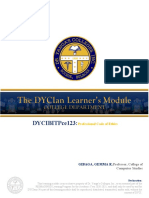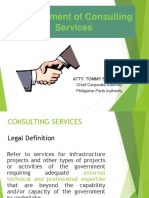0% found this document useful (0 votes)
79 views34 pagesPengenalan Etika Komputer
Ethics in computing has its origins in the 1950s with Norbert Wiener's work on the impacts of information technologies. Early pioneers like Donn Parker in the 1960s and Walter Maner in the 1970s helped establish the field of computer ethics. Major topics discussed include privacy, intellectual property, responsibility of computer professionals, and the impacts of technology on society. Deborah Johnson's 1985 book was influential in identifying key issues. James Moor argued that computers are logically flexible and can reshape tasks, sometimes challenging existing norms. The field continues to address new issues around areas like the internet, artificial intelligence, and a just distribution of technology's benefits and harms.
Uploaded by
Eno FitriyantiCopyright
© © All Rights Reserved
We take content rights seriously. If you suspect this is your content, claim it here.
Available Formats
Download as PPTX, PDF, TXT or read online on Scribd
0% found this document useful (0 votes)
79 views34 pagesPengenalan Etika Komputer
Ethics in computing has its origins in the 1950s with Norbert Wiener's work on the impacts of information technologies. Early pioneers like Donn Parker in the 1960s and Walter Maner in the 1970s helped establish the field of computer ethics. Major topics discussed include privacy, intellectual property, responsibility of computer professionals, and the impacts of technology on society. Deborah Johnson's 1985 book was influential in identifying key issues. James Moor argued that computers are logically flexible and can reshape tasks, sometimes challenging existing norms. The field continues to address new issues around areas like the internet, artificial intelligence, and a just distribution of technology's benefits and harms.
Uploaded by
Eno FitriyantiCopyright
© © All Rights Reserved
We take content rights seriously. If you suspect this is your content, claim it here.
Available Formats
Download as PPTX, PDF, TXT or read online on Scribd
/ 34

